Fluoride in Kombucha? Why I Stopped Drinking Kombucha and Tea
Is there fluoride in kombucha? Yes. There is a lot of fluoride in kombucha, because there is a lot of fluoride in tea. Which is why I stopped drinking it.
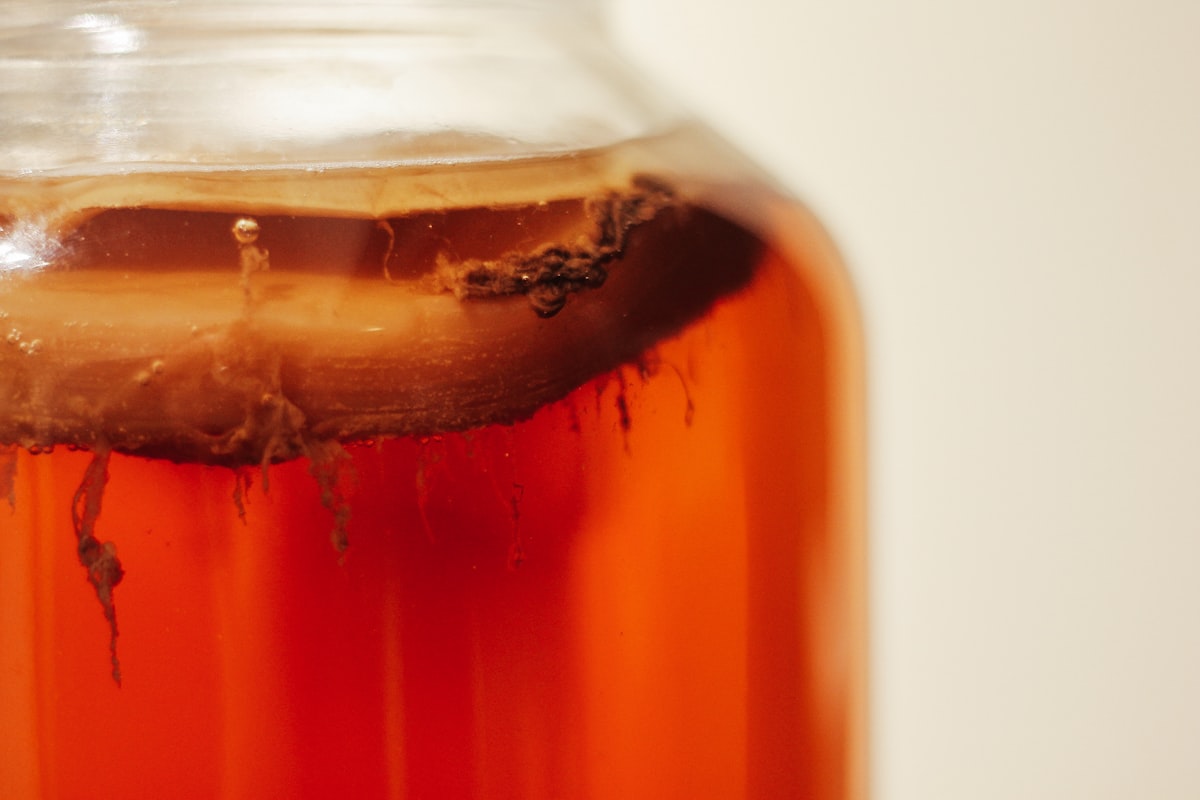
Is there fluoride in kombucha? Yes. There is a lot of fluoride in kombucha, because there is a lot of fluoride in tea. Which is why I stopped drinking it.
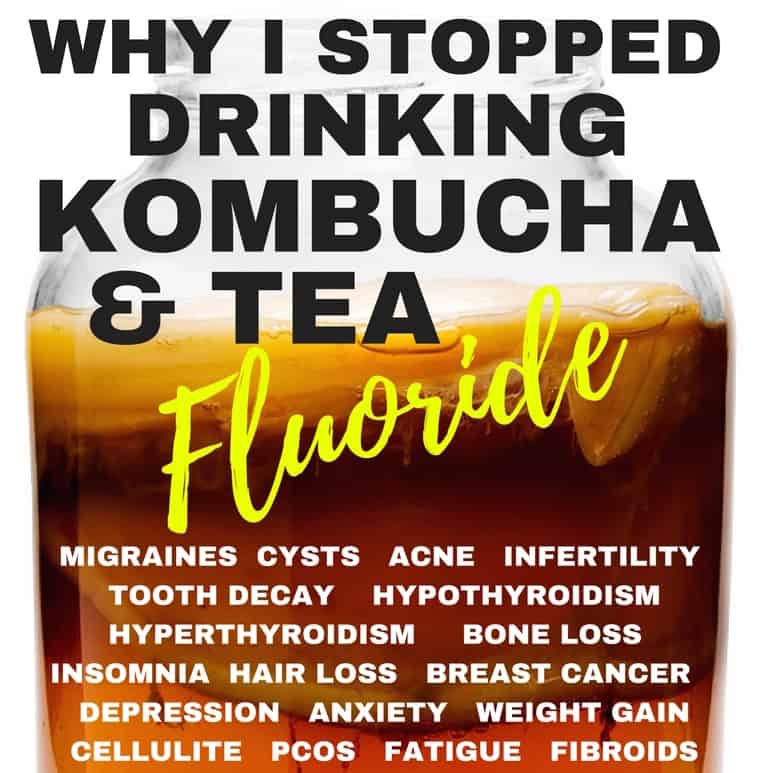
If you’re suffering from hormonal problems, migraine headaches, cysts in your breasts or ovaries, cavities, bone loss, or other health challenges, it could be the fluoride in the tea you’re drinking. Read on to learn more.
Fluoride in Kombucha? Why I Stopped Drinking Kombucha and Tea
Update: This video is not accessible at this time because my channel was deleted by YouTube in December 2022. Hopefully it will be reinstated when this oppressive censorship is finally stopped and we get our freedom of speech back.
What Is Kombucha?
Kombucha is a drink I discovered almost a decade ago when I started learning how to eat healthier. I had never heard of it before but when I came across the Weston Price diet in 2007, I started drinking kombucha and even making my own.
I made kombucha for a few years and then I stopped, but we still buy it from time to time and I’ve still been recommending it on my website. As of this week, I will no longer drink kombucha or tea. I can no longer recommend these drinks.
Fluoride in Kombucha and Tea: Connecting the Dots
There are a number of women in my life who have been having hormonal problems. From acne to cysts in their breasts and ovaries, to painful periods and hypothyroid symptoms. These are some of the people closest to me, and I’ve been trying to put the pieces of the puzzle together to see what was going on with them and fix their health problems.
Turns out, all the roads lead back to fluoride. Specifically the fluoride in the kombucha and tea they are drinking.
- Our nanny, Jennifer, 25, has been suffering from chronic migraine headaches, very painful ovarian cysts, painful PMS symptoms, and persistent acne.
- My friend Maryam, in her late 40s, has chronic migraine headaches, cysts in her breasts, painful PMS symptoms, and persistent acne.
- Maryam’s daughter, Ghaz, in her late 20s, has persistent acne and painful periods.
- My friend Angelique, in her 40s, has persistent acne and hypothyroid symptoms.
What do they all have in common? They’re all drinking a lot of tea and kombucha.
- Jennifer has been drinking 16-32 ounces of kombucha every day.
- Maryam and Angelique have been drinking at least 2-4 (16-32 ounces) cups of tea per day.
- Ghaz was drinking tea every morning.
How I Learned About Fluoride in Kombucha and Tea
I read The End of Acne by Melissa Gardner a few weeks ago and it completely rocked my world. You can read my whole book review here.
Melissa was able to completely get rid of the cystic acne that plagued her for decades, from the time she was a teenager, just by eliminating fluoride.
But it’s not just acne. There are many other health problems that are caused by consuming fluoride. For example, hormonal problems including diabetes, obesity, adrenal exhaustion, hypothyroidism, infertility, PCOS, cysts in the breasts and in the ovaries, migraines, and on and on.
This is because fluoride blocks the uptake (absorption) of iodine. Iodine is critical when it comes to healthy hormones. Iodine is stored in the thyroid, breasts, ovaries, and in men, in the prostate. Fluoride and other halides like bromide are like “tricksters” that take up residence in our body in the place of iodine. The body then thinks it has all the iodine it needs, but in reality, it’s a squatter called fluoride which is not a nutrient that feeds us, but instead, a poison.
How Much Fluoride Are You Consuming?
A lot of people think they are not consuming much fluoride because it’s not in their drinking water. Maybe they have well water or they’re using reverse osmosis filter. But there is actually a lot of fluoride most of the food we’re eating and the beverages we consume.
Remember, fluoride consumption is cumulative. So if you drink a glass of fluoridated water, that’s just one input. Many soft drinks, fruit juices, beer wine, all contain fluoride. And that’s just drinks. The food we eat contains fluoride if it’s processed with fluoridated water. I’m in the process of making a chart of all the foods with the most fluoride in order of how much they have.
Well, it turns out that one of the foods with the most fluoride is tea. Kombucha is made with tea and therefore it is very high in fluoride.
Why Is There So Much Fluoride in Kombucha and Tea?
Camellia sinensis is a species of evergreen shrub or small tree that has leaves and leaf buds that are used to produce tea. For whatever reason, this species of plant acts like a sponge for fluoride in the soil, sucking up the fluoride and storing it in its leaves. Perhaps this is a natural defense mechanism against predators.
This is true of all tea plants, regardless of the variety or species: black tea, green tea, white tea, even rooibos tea. Mature tea plants have more fluoride in the leaves. Younger tea plants have less.
Fluoride in Kombucha and Tea? Is Organic Tea Really Better?
When I first started making kombucha I read on the Weston Price website that fluoride was not a problem as long as you use organic tea when making kombucha. But it turns out there is no real evidence of that.
Sally Fallon Morell writes on the WAPF website:
Researchers looking at the toxic effects of fluoride have recently raised concerns about kombucha because most commercial tea is very high in fluoride. Fortunately, kombucha made with organic tea contains very little fluoride. We had fluoride levels tested in organic black tea and in the kombucha made with the tea. The levels in the tea were only slightly higher than those in the filtered water from which it was made and actually slightly lower in the kombucha than in the black tea. These results suggest that the process of fermentation actually removes some of the fluoride from the tea and may explain why the kombucha “mushroom” eventually gets black. These older, darkened “mushrooms” can be replaced with the newer, cleaner “babies” that grow on top of the original “mushroom” during the fermentation process.
Given everything that went down last year with the FCLO scandal (read my post), I no longer trust Sally Fallon Morell and the Weston Price Foundation as a good source of information for nutrition and health.
But even if I did trust WAPF, this is the only study Fallon Morell references as evidence that organic tea is lower in fluoride than conventionally grown tea. Where did these test results come from? She said WAPF did the tests? There’s not even a link.
Melissa Gardner, author of The Hidden Cause of Acne: How Toxic Water Is Affecting Your Health and What You Can Do About It, raised similar questions about Sally’s claims:
“In the article, [Fallon Morell] states that the organic black tea contained “very little fluoride” yet the chart in the reference section reveals it measured at .94 ppm. This is higher than the “optimal level” of fluoride in drinking water recently proposed by the U.S. Department of Health and Human Services (0.7 ppm). Some of this fluoride came from the filtered water used to make the tea (it measured at .62 ppm), but still, this small study did not give me confidence that organic black tea is low in fluoride.
How many samples were measured? Was it just one? What brand of organic black tea was tested? How were the plants grown? I would need answers to these important questions and more before I could conclude that organic tea is low in fluoride.”
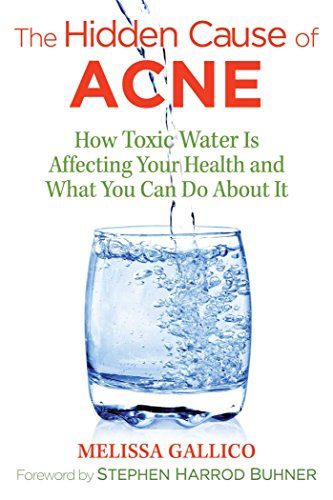
Flawed Tests for Fluoride in Tea
Melissa’s questions about how the testing was done are spot on, as it turns out that testing for fluoride in tea is not so easy to do. Apparently the old way of testing for fluoride in tea was probably inaccurate. In fact, a recent study showed that there is a lot more fluoride in tea than previously believed.
In Melissa’s book, The Hidden Cause of Acne, she references a study from the Medical College of Georgia:
“When we tested the patients’ tea brands using a traditional method, we found the fluoride concentrations to be very low, so we wondered if that method was detecting all of the fluoride,” Whitford said, noting that the tea plant, Camellia sinensis, creates a quandary when measuring fluoride. Unique among other plants, it accumulates huge concentrations of fluoride and aluminum in its leaves – each mineral ranges from 600 to more than 1,000 milligrams per kilogram of leaves. When the leaves are brewed for tea, some of the minerals leach into the beverage.
Most published studies about black tea traditionally have used a method of measuring fluoride that doesn’t account for the amount that combines with aluminum to form insoluble aluminum fluoride, which is not detected by the fluoride electrode. Whitford compared that method with a diffusion method, which breaks the aluminum-fluoride bond so that all fluoride in the tea samples can be extracted and measured.
He tested seven brands of store-bought black tea, steeping each for five minutes in deionized water, which contains no fluoride. The amount of fluoride in each sample was 1.4 to 3.3 times higher using the diffusion method than the traditional method.
So what this new study is saying is that the old way of testing the amount of fluoride in tea was likely flawed because the fluoride was binding with the aluminum. With this new way of testing, fluoride in tea is likely 1.4-3.3 times higher than they thought.
Dr. Weston Price and Kombucha
It is very interesting to me that Dr. Weston Price never recommended kombucha in his book, Nutrition and Physical Degeneration. Just as he did not recommend FCLO (fermented cod liver oil). Seems to me this is something Sally Fallon Morell recommends, but not Dr. Price.
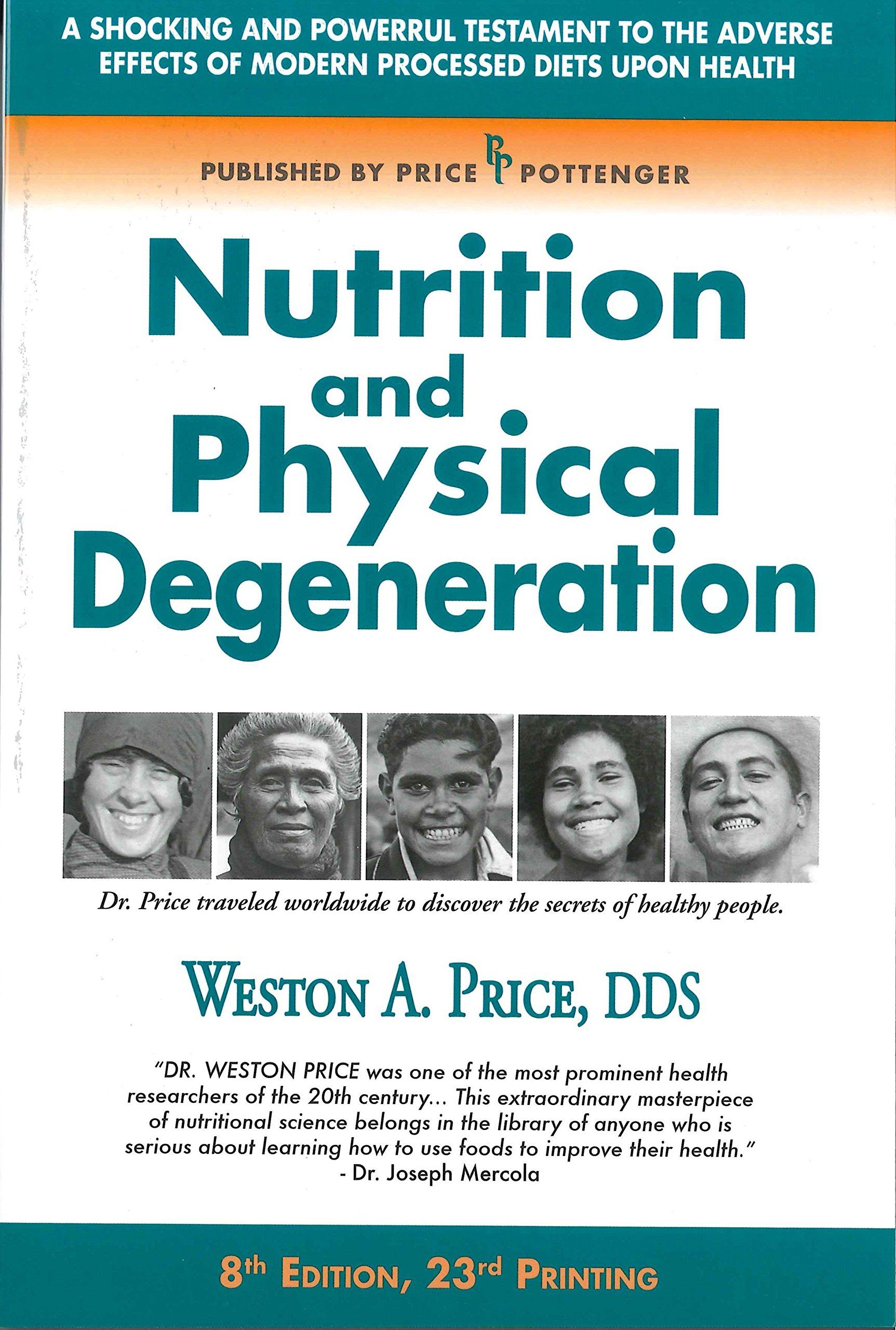
Perhaps you believe Sally’s claim that the kombucha fermentation process somehow magically reduces the fluoride in the tea. However, I do not. And as such, I don’t think we have sufficient evidence to disprove the fact that there is fluoride in tea, and as a result, there is fluoride in kombucha.
Fluoride in Kombucha & Tea Makes It Not Worth the Risk
I cannot imagine going to the trouble of making kombucha and ingesting more fluoride, when most of us are already consuming too much.
If you or someone you know struggles with any of the health conditions I listed above from acne to hormonal problems to migraines to cavities or bone loss, I would not recommend drinking kombucha or tea. In fact, I think it’s risky even if you don’t have any symptoms.
What To Drink Instead of Kombucha
A great alternative to kombucha that doesn’t have fluoride is water kefir soda. You can make it at home with filtered water, and it’s naturally fermented. It only costs a penny per ounce to make, which costs 1/3 of the price of soda.
What To Drink Instead of Tea
Coffee is a good option. Look for organic coffee. We have a Keurig, and we buy the organic coffee pods on Amazon that are 90% compostable. Be sure to use filtered water (filtered for fluoride) to make your coffee.
You can also switch to herbal tea — such as mint tea, chamomile, or ginger tea.
We’ve started drinking herbal iced tea with dried stevia and it’s fabulous. I grow various herbs in the garden (they grow like weeds): spearmint, chocolate mint, lemon balm, lemongrass, and yes stevia. You can brew these herbs fresh or dried. It’s so easy!
Please Share This Post
Do you have a friend or family member who suffers from any of the above issues? Are they drinking tea or kombucha or other foods and drinks high in fluoride? Please share this post.
Share Your Comments Below
Do you have experience with fluoride in kombucha or tea? Please share below.
Pin This Post: Fluoride in Kombucha? Why I Stopped Drinking Kombucha and Tea
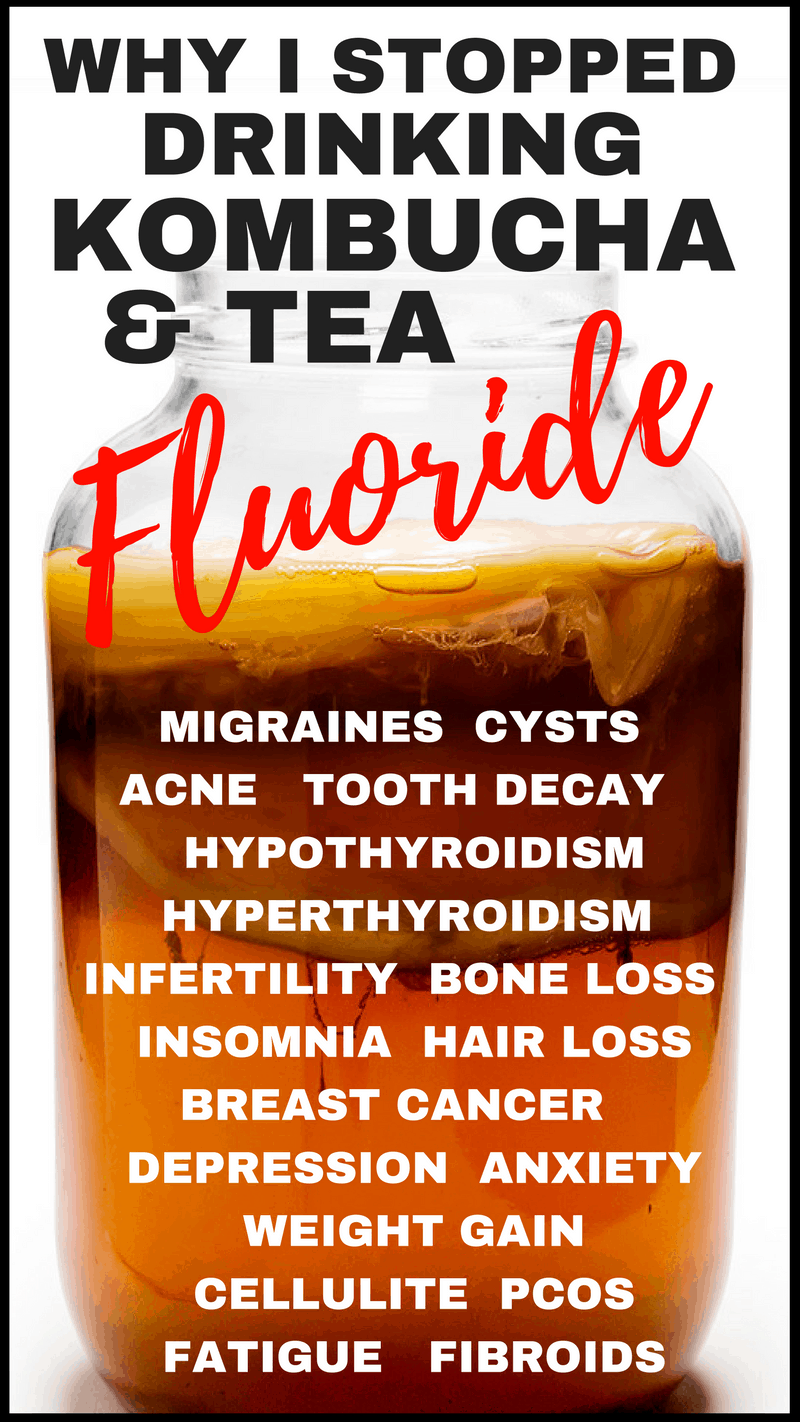



Comments ()